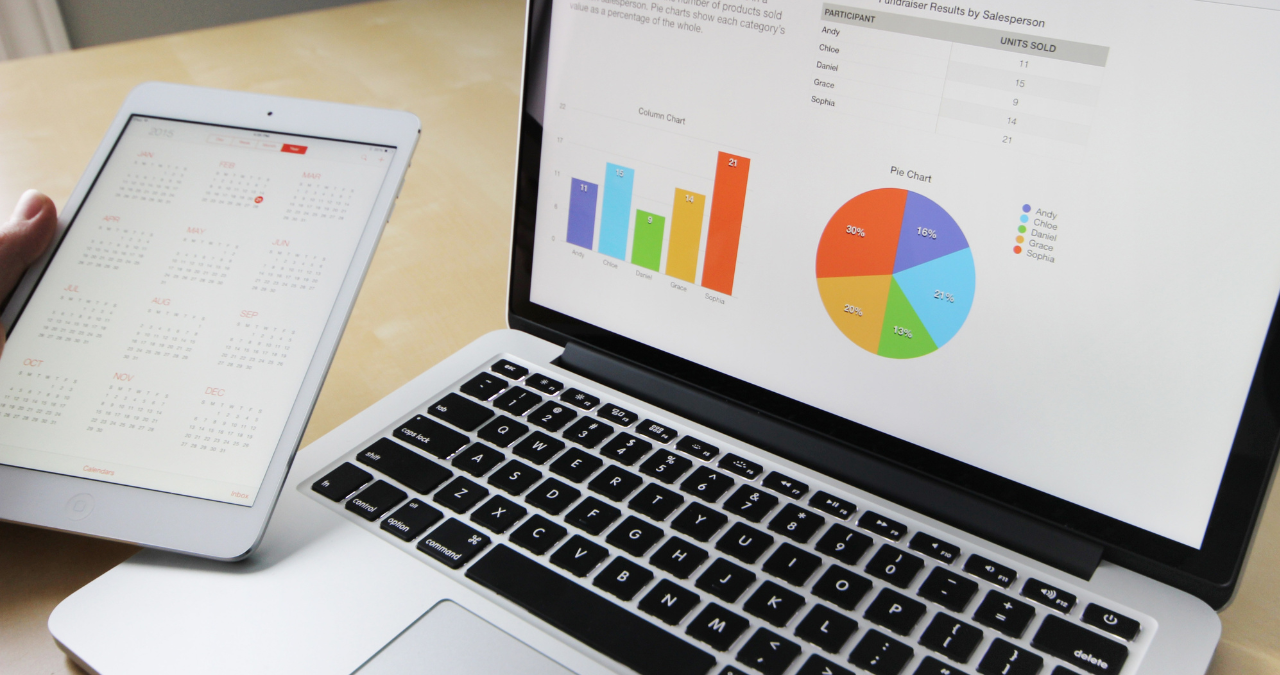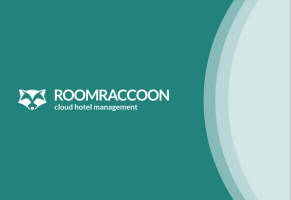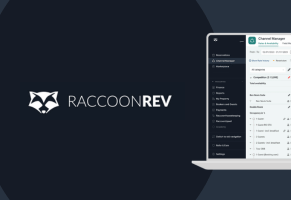CORE PRODUCT
Hotel Data Analytics: Everything You Need to Know About Data in the Hospitality Industry
July 31, 2023 Sini. M
Home > Industry Trends, Technology > Hotel Data Analytics: Everything You Need to Know About Data in the Hospitality Industry
Share this post

Travelers use online shopping for virtually everything — from booking a room to making a restaurant reservation. That’s why hotels, vacation rental properties, lodges, and all hospitality properties, use data analytics to gain insights, make their operations more efficient, and, most importantly, increase revenue.
If you’re not into statistics, numbers, and graphs to tell a story, worry not because that’s normal. After all, you’re in the hospitality industry mostly because you’re great with people as opposed to being a numbers whiz. Luckily, you don’t have to rely on yourself for hotel data analytics to understand what’s going on in your property. There are hotel management tools at your fingertips that generate, interpret, and lay out the data for you in a simplified and precise manner.
Let’s delve into the concept of data analytics in the hotel industry, the types of data analytics, and how you can use data analytics to increase hotel revenue.
Quick Links
What is Hotel Data Analytics?

Hotel data analytics is the qualitative and quantitative information hotels use to improve information and make the best business decisions.
It collects, analyzes, and uses information to gain insights and make decisions based on said data to enhance your hotel’s operations. In the hospitality industry, copious amounts of data are generated daily. There’s plenty of big data to analyze — from guest reservations (via your hotel’s website, telephone, or OTA) to transactions, pre-payments, guest feedback, online reputation, and loyalty programs.
All this information is then used to look for patterns, repetitive trends, make conclusions and substantiate decision-making. Without data, how else can you draw predictive assumptions and decide your hotel’s future? Even a simple revenue management strategy can only stand on its legs if data backs it.
How Do Hotels Use Data Analytics?

Hotels can use data analytics when identifying booking patterns to optimize room rates, inventory, and hotel housekeeping. Knowing how many guests have booked or checked in for a particular date will ensure you get the needed staff to serve your guests. Since most hotels also have restaurants, data analytics will help you identify your guest’s dining habits, allowing you to personalize and improve the guest experience.
Let’s explore the different analytics models hoteliers use.
What Are the Four Types of Hotel Industry Data Analytics?

While hotel industry providers use many popular types of data analytics, these four are the most common: descriptive analysis, diagnostic analysis, predictive analysis, and prescriptive analysis. Let’s explore each one of them below:
Descriptive Analysis
This type describes the main features of a data set (a collection of related sets of information that can be grouped as one unit using a computer). The descriptive analysis focuses on organizing and presenting data mathematically that can be measured using the mean, median, mode, and standard deviation. With this type, you can see the prevalent patterns and trends in your hotel’s occupancy and how to increase it.
Diagnostic Analysis
With diagnostic analysis, you’ll understand the cause-and-effect relationship within the data. It looks at the factors that contributed to the outcome or those that influenced your guests’ behaviors. For instance, the revenue management tool, RacoonRev, could be why your occupancy levels increase more than your competitors. Or, it could not; either way, the diagnostic analysis of your data will show you the causal relationship between action and outcome.
Predictive Analysis
Predictive analysis uses historical data to predict and forecast the future. ‘Hindsight is the best foresight’ is the maxim with this type of analysis because it looks at past statistics and algorithms to identify patterns and formulate predictive strategies. As a hotelier, you’ll use predictive analysis to forecast your sales, revenue and predict your guests’ needs based on what they purchased last time they booked. RoomRaccoon’s hotel reports can be used for predictive analysis and to build a strategy to boost performance.
Prescriptive Analysis
This analytics model prescribes or recommends actions you should take based on the predictions you made. It’s a holistic approach that combines historical data, insights, optimized algorithms, and a strict operating procedure. Prescriptive analysis helps with decision-making and allocating resources. If you know that your online presence needs a boost or you should use Google Ads for Hotels to market your property, your action will be influenced by prescriptive analysis.
What Are the Six Hotel Data Sources?

- Booking Engine: you gather data from your website visitors, learn their demographics, and what packages appeal to them.
- Digital Invoicing: you can capture details like invoice number, supplier name, address, and other information for tracking payments.
- Guest Surveys and Polls: know your guest’s preferences, how a particular service or product performed, and whether you should ditch or keep it.
- PMS: your property management system is akin to an information hub that absorbs data from everywhere — booking reservations, guest check-in and check-out, room allotment, room rates, and billing.
- Customer Support Channels: this data source allows you to segment your guests by their queries, and the data can show you your guests’ preferences and geographic location.
- Newsletter Opt-in Forms: Opt-in forms are a great way of collecting data from website visitors through mailers. You place a neat short form on your website and offer them exclusive deals when they sign up and join your list.
How Can Hotel Data Analytics Improve Operations and Efficiency?

Hotel data analytics can improve operations and efficiency through predictive analytics. As mentioned, this model uses mathematical and statistical methods, including artificial intelligence and machine learning, to predict the value or status of something of interest. This data technique or model can help businesses extract valuable insights to improve customer experience and operations.
What About Enhancing the Guest Experience?
The same way restaurants analyze data on customer preferences, dining habits, and feedback to improve menu offerings and personalize customer experiences is the same way hotels use data analytics to identify booking patterns and optimize room rates, inventory, and staffing levels. As a result, hotel revenue management and hotel data analytics go hand-in-hand. Data analytics helps businesses track and measure key performance metrics, such as revenue per available room (RevPAR), customer satisfaction, and loyalty.
What Role Does Predictive Analytics Play in Hotel Performance Optimization?

Predictive analytics has changed the game in the hotel industry, offering valuable revenue and labor management insights. How does it do this?
In revenue management, hotels leverage predictive analytics to optimize their operations. Predictive models accurately forecast future demand by analyzing historical data, market trends, and external factors. You can fine-tune pricing strategies, adjust inventory levels, and maximize revenue.
With dynamic pricing, you can adjust prices based on real-time demand fluctuations and competitor-based pricing; you can optimize revenue and maximize profitability by offering the right price at the right time. This is how hotels use data analytics to increase revenue.
Predictive analytics also assists hotels in channel management, determining the most effective distribution channels for their inventory. You can allocate inventory to channels with the highest revenue potential by analyzing historical data and market trends. Consequently, predictive models identify guest preferences and behavior patterns, enabling you to offer personalized upselling opportunities. You can increase the average revenue per guest by recommending relevant upgrades or additional services.
How Can Hotels Leverage Data Analytics for Effective Marketing and Personalization?

The most effective tool hotels can use to leverage data analytics for marketing and personalization is an all-in-one property management system. RoomRaccoon’s potent PMS is the central repository of guest information and is your ideal front desk solution for guest engagement, personalized offers, and feedback collection.
Using Analytics to Make Data-Driven Decisions
Ensuring a positive guest experience makes your hotel successful. To measure if the guest experiences meet expectations, you have to track real-time data from online reviews and post-stay surveys.
Based on the hotel data you gather, you can understand the guest sentiment, uncover trends, and prioritize improvements that will most significantly impact guest satisfaction, loyalty, and, most importantly, your profit margin. With these insights, you can optimize your marketing efforts, including social media posts and website offers to attract guests and increase revenue. And that’s what data analytics in the hospitality industry aims to do — to make decisions based on the intelligence or data at your disposal.
Book a demo with us and see how you can leverage all the data you gather for optimal success.
Follow us
Sini. M
Sini is an accomplished Content Manager at RoomRaccoon. As an agency-hailed talent, her work brings a fresh creative flair to the world of SaaS. And she brings her very own brand of sass to the SaaS world. While not on the clock, Sini enjoys a glass of fine wine, and well, her privacy.
Related Posts
Subscribe to our newsletter for more on the latest hospitality & RoomRaccoon updates delivered straight to your inbox!





